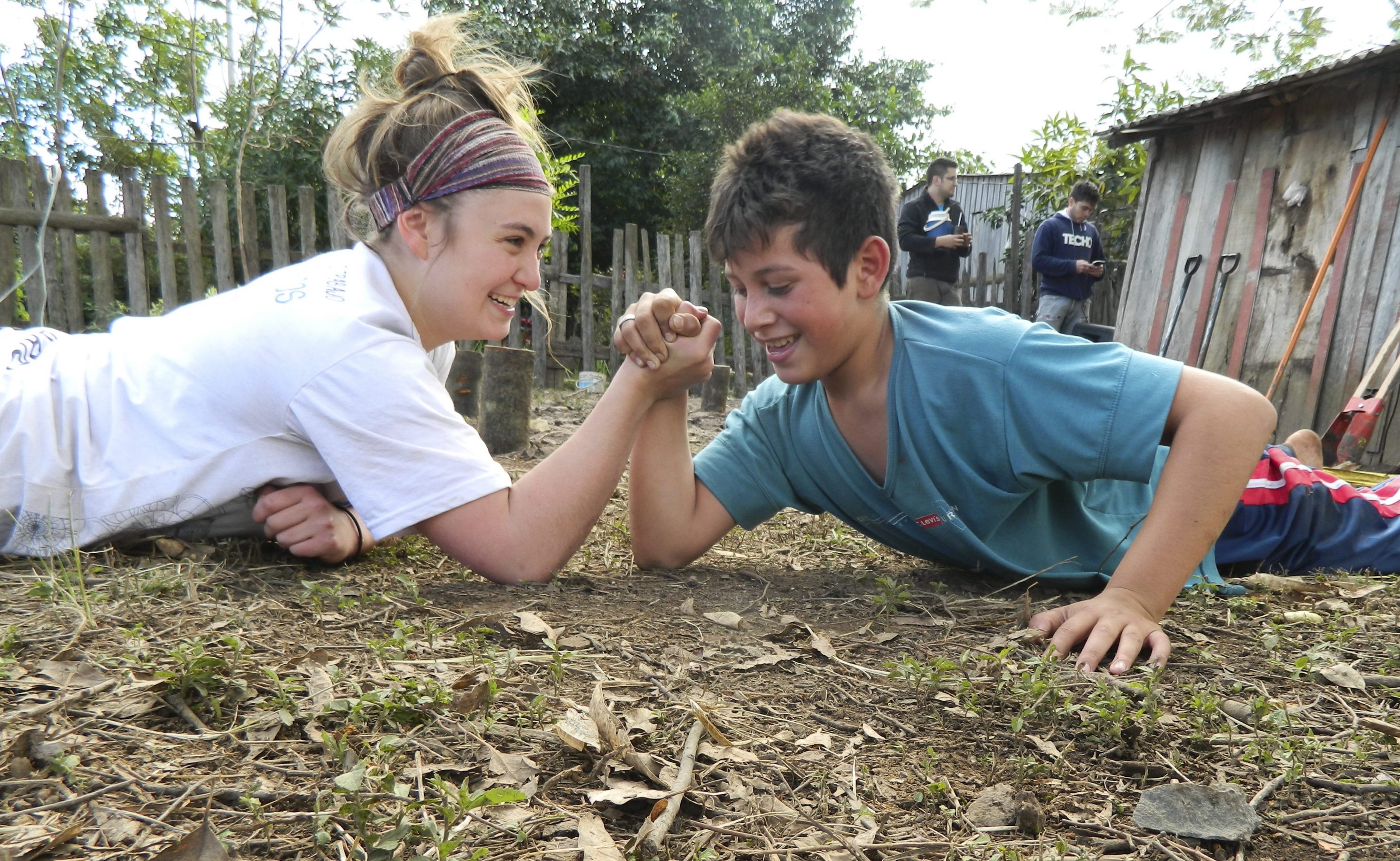
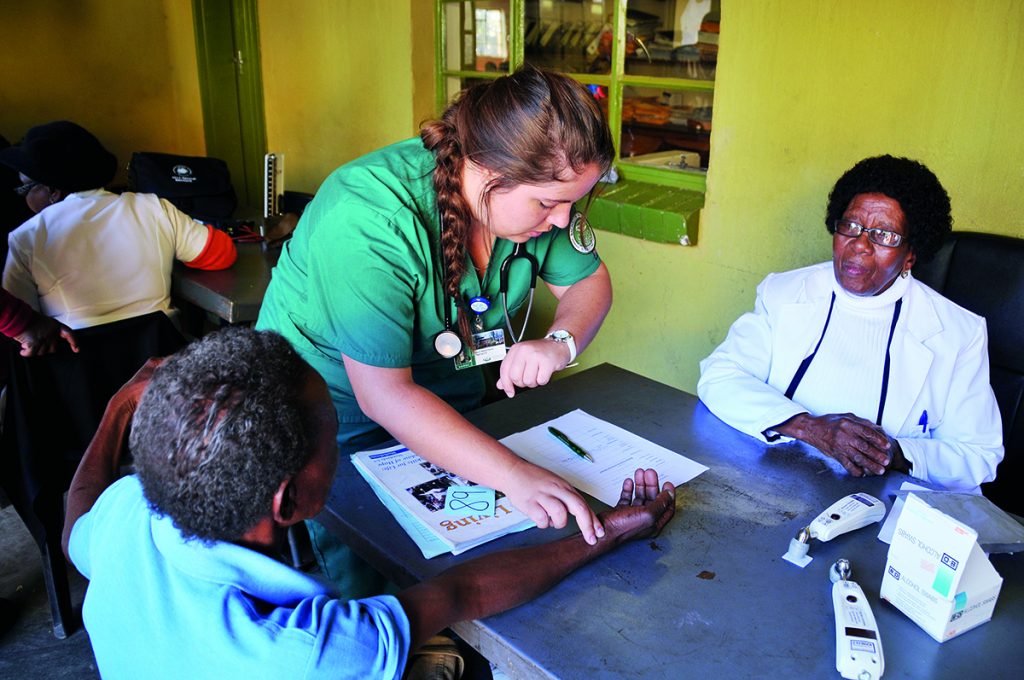
OHIO student Elena Kaiser, BSN ’17, (center) is led by health care professionals in Botswana at a clinic during GHI’s June 2016 trip to the African country. Photo by Gillian Ice
The GHI was launched in 2012 by the College of Health Sciences and Professions (CHSP) and the Heritage College of Osteopathic Medicine, with input from the Center for International Studies. It invites all OHIO students, no matter the discipline, to explore real-world experiences from a global health perspective through courses, certificates, master’s degrees, service learning trips, research, internships, medical rotations, and study abroad.
“It’s been very exciting,” says Gillian Ice, professor and director of Global Health. “[The college] has been very open to innovation in creating new opportunities to provide our students with transformative educational experiences.”
Professionals trained to address today’s global health issues—like the rise in human migration, recent pandemics (avian influenza, HIV, SARS), and the health concerns of underserved immigrants—are needed more than ever. The GHI believes health care providers, at home and abroad, must become educated about and adept at serving different cultures, populations, and health systems. Students interested in health and medicine, the environment, international development, health education, international relief work, and biology are a natural fit for the initiative. But students in any academic area can benefit from a deepening of their understanding of other environments and cultures from a global health perspective.
“All disciplines intersect with health,” says Ice, “whether they study economics, political science, or documentary film. It’s all connected.”
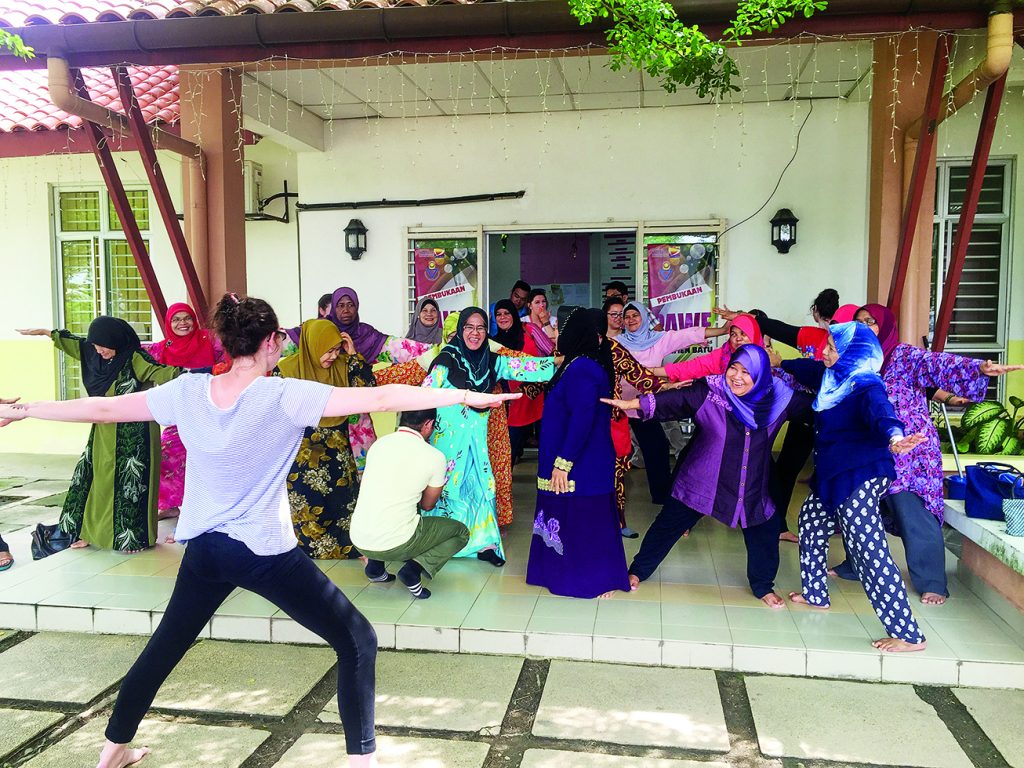
Hanna Smith, BSCSD ’17, leads a yoga session at PAWEBatu Adult Day Center in Kuala Lumpur, Malaysia, during the May 2017 GHI trip. Photo by Brooke Hallowell
Get ready, get set: goodwill
Since Bobcats are doers, GHI created the Global Health Case Competition in 2014. Four students from at least two colleges and four majors compete in teams to develop possible solutions to a country-specific, GHI-identified health case. The winning team travels to the case location and researches the feasibility of its proposed solution. By being in the selected country and engaging first-hand with the people, students and faculty spread goodwill by working with a local community to solve a health problem. In the process, they gain a deeper understanding of the culture’s diversity and its health issues.
“One of the most important things students learn during this process,” says Meredith Gartin, CHSP visiting assistant professor and faculty director of the competition, “is that if you just keep trying to talk and communicate and be open to people, you’ll eventually find that common ground, and that’s a lesson you can take with you wherever you go, no matter what you want to do.”
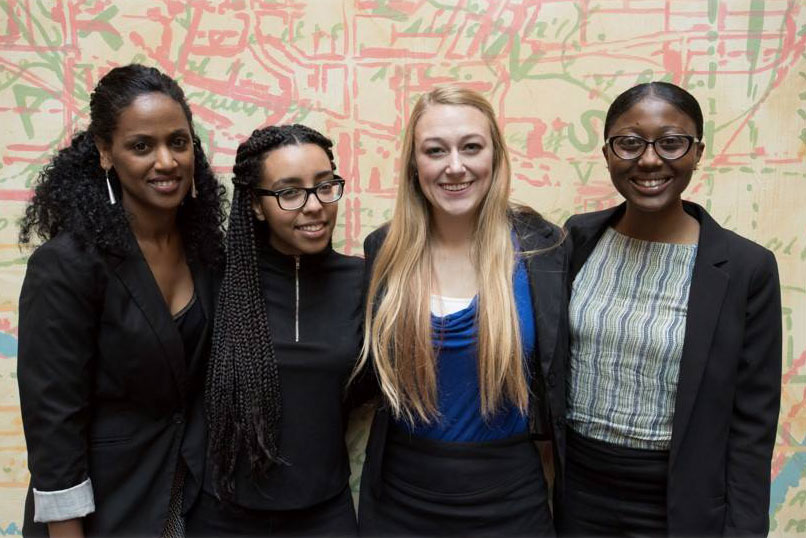
Team Tranquilo, winners of the 2016 GHI Competition, traveled to Paraguay to help build homes. (L-R) Fithi Embaye, Ellen Haile, Brenna Innocenzi, and Abyssinia Young. Photo by Lauren Dickey, BSVC ’15, MA ’18
The 2016 case competition focused on the negative impact of climate change on a community in Paraguay. Increased rains, low-quality housing, and poor infrastructure resulted in 100,000 displaced people and serious health risks in the region. The 2016 case winners, Fithi Embaye, MA ’13, MSW ’17 (social work); political science student Ellen Haile; Brenna Innocenzi, BSPE ’17 (exercise physiology); and communications studies student Abyssinia Young proposed to improve both environmental and health conditions by repurposing trash into “bottle bricks.” Made by filling plastic bottles with non-biodegradable trash, “bottle bricks” are sturdy enough to be used in the construction of sustainable housing.
“It’s an incredible opportunity to not only learn about another culture, but also to learn about yourself,” says Innocenzi.
Ice agrees: “It’s amazing. In as little as a few weeks, we see students undergo a transformation. Their perspectives on health and the world are forever changed. As a faculty member, it’s a privilege to be a part of such a meaningful experience.”
Feature photo by Kerri Shaw Riddle, AB ’96, MA ’93
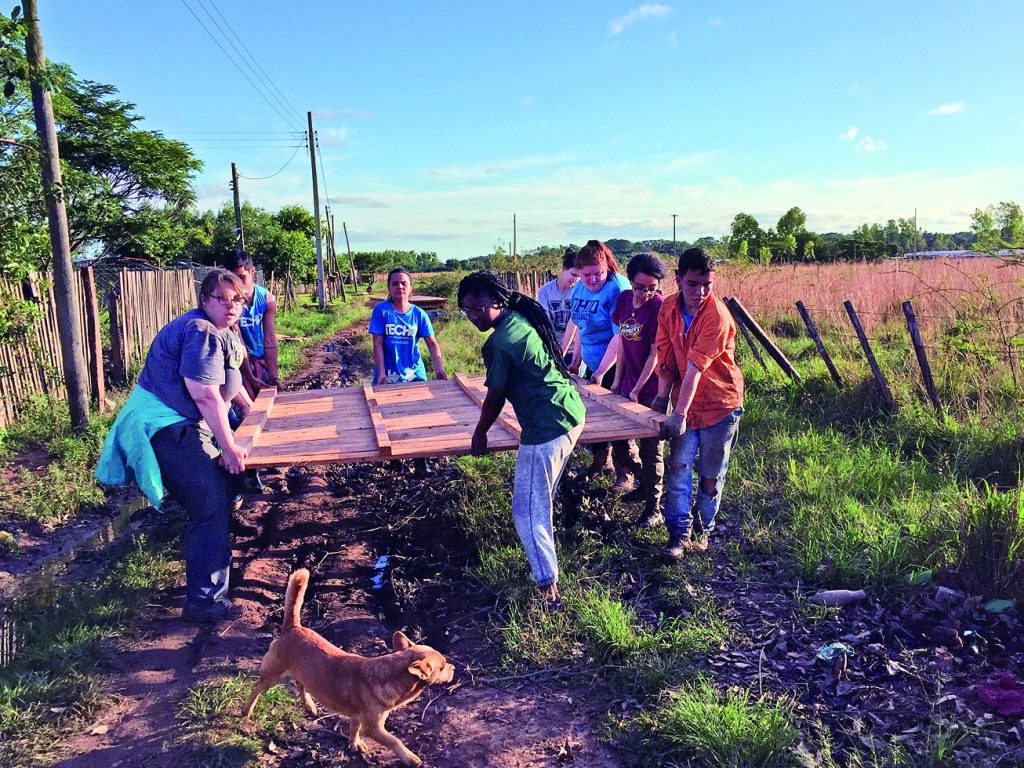
OHIO students and volunteers from TECHO, a nonprofit in Paraguay, team up to carry a panel wall that will become part of a home. Photo by Serena Verweire, CFS ’18


